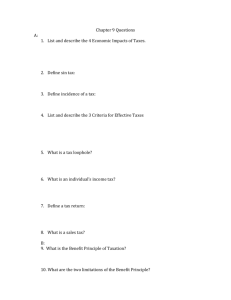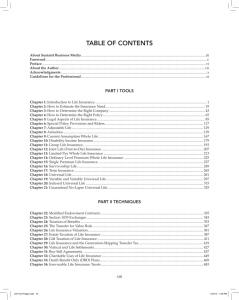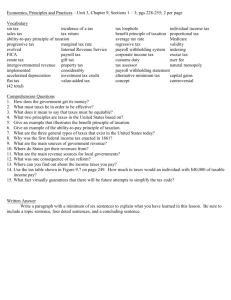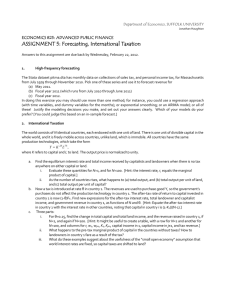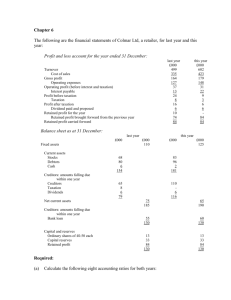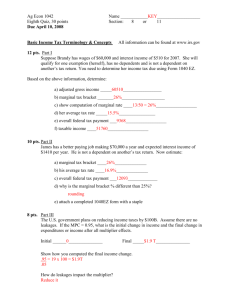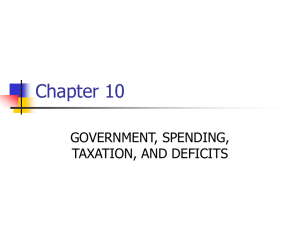Abstract
advertisement
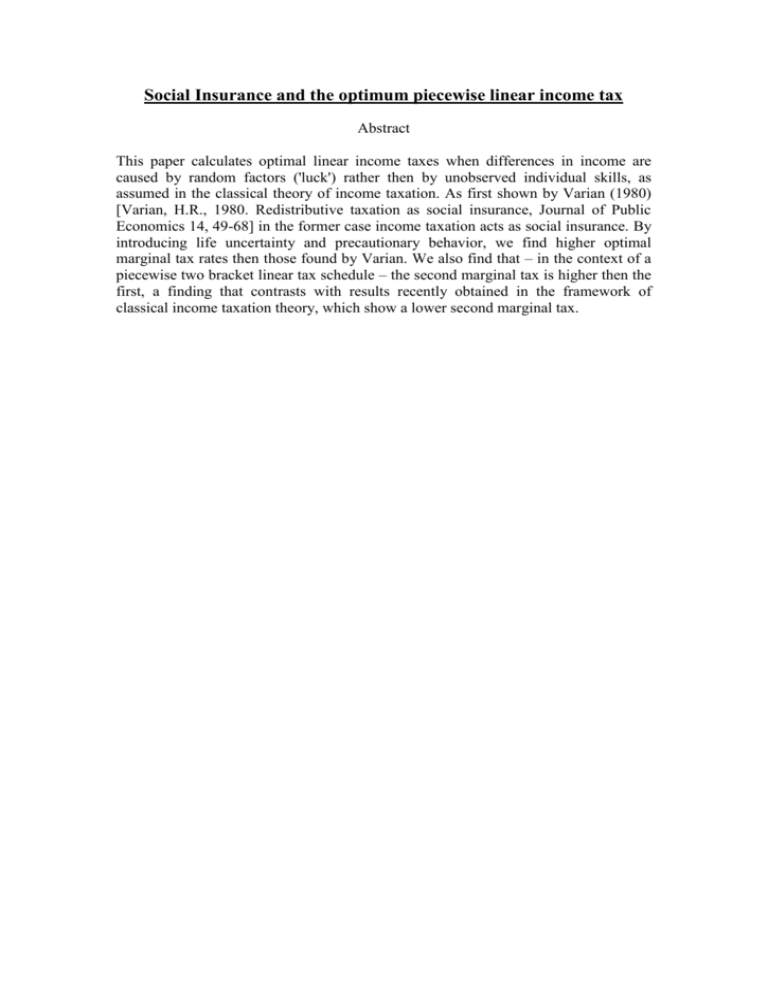
Social Insurance and the optimum piecewise linear income tax
Abstract
This paper calculates optimal linear income taxes when differences in income are
caused by random factors ('luck') rather then by unobserved individual skills, as
assumed in the classical theory of income taxation. As first shown by Varian (1980)
[Varian, H.R., 1980. Redistributive taxation as social insurance, Journal of Public
Economics 14, 49-68] in the former case income taxation acts as social insurance. By
introducing life uncertainty and precautionary behavior, we find higher optimal
marginal tax rates then those found by Varian. We also find that – in the context of a
piecewise two bracket linear tax schedule – the second marginal tax is higher then the
first, a finding that contrasts with results recently obtained in the framework of
classical income taxation theory, which show a lower second marginal tax.
